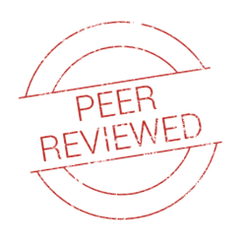KEYWORDS
Prebiotics
Cognition
Gut-brain axis
Stress
Sleep
Lifestyle factors
Abstract
This commentary expands on the article "Targeting Cognitive Resilience through Prebiotics: A Focused Perspective" (1), exploring the role of prebiotics in promoting cognitive resilience under stress, poor sleep, and unhealthy lifestyles. The article advocates research that goes beyond cognitive enhancement to focus on maintaining cognitive function under adverse conditions. It calls for randomized controlled trials targeting at-risk populations and cognition-taxing conditions, as well as the development of prebiotic-based functional foods and regulatory pathways for cognitive health claims. Future research should explore a broader range of stressors affecting the microbiome and cognition, while also considering individual differences in microbiome composition for personalised prebiotic interventions. Insights from this research could inform dietary guidelines, public health policies and community programmes as well as encourage product innovation targeting the gut-brain axis.
Introduction
The recent perspective article produced by the Expert Group on Prebiotics and Cognition, convened by the International Life Sciences Institute Europe (ILSI Europe) (1), explores the role of prebiotics in promoting cognitive resilience. It synthesizes existing research on the gut-brain axis, emphasizing the need to investigate prebiotics under cognition-taxing conditions rather than solely in basal states. Cognition refers to the array of mental processes involved in acquiring knowledge and understanding through thought, experience, and the senses. These processes include perception, attention, memory, reasoning, and problem-solving. Measuring cognition in humans presents unique challenges due to its complexity and the influence of multiple factors, including genetic predisposition, environmental conditions, and individual variability in cognitive baselines. Traditional assessment methods, such as neuropsychological testing and neuroimaging, provide valuable insights but may fail to capture the full scope of cognitive functioning in real-world settings. Additionally, cognitive performance fluctuates based on stress levels, sleep quality, diet, and physical activity, making consistent measurement difficult (2, 3).

Prebiotics and Cognitive Resilience
In the article, the authors argue that prebiotics should be studied in populations experiencing stress, poor sleep, sedentary lifestyles, and unhealthy dietary patterns—factors known to negatively impact cognition. By broadening the scope of research to include diverse populations and real-world cognitive challenges, the article sets a research agenda that moves beyond conventional cognitive health studies (4, 5).
The intersection of nutrition and cognitive health is a rapidly expanding field. The gut microbiome has been recognized as a critical player in brain function, influencing cognition through immune, endocrine, and neural pathways (6, 7). Prebiotics, which selectively stimulate beneficial gut bacteria, have shown potential in animal studies to improve memory, learning, and executive function (8). However, human studies have produced mixed results, with meta-analyses indicating limited cognitive benefits when prebiotics are administered under basal conditions (9, 10). The perspective article highlights a crucial gap: prebiotics may exert stronger effects when cognition is challenged, offering a new direction for research and application.
Cognitive Resilience and Industry Implications
This commentary acknowledges the contributions of Dalile et al. (2025) while expanding on additional insights. By shifting the focus toward cognitive resilience, the article reframes the potential of prebiotics as protective agents rather than direct cognitive enhancers. This aligns with emerging research on cognitive resilience, which suggests that maintaining cognitive function under adverse conditions is as critical as preventing cognitive decline (11). Furthermore, this commentary will discuss considerations for industry applications, including the development of targeted prebiotic formulations for at-risk populations, integration into functional foods, and potential regulatory pathways for health claims.
Strengths of the Perspective Article
A key strength of the perspective article is its synthesis of existing evidence and its structured research agenda. The authors advocate for rigorous randomized controlled trials (RCTs) that assess prebiotic efficacy in cognition-taxing scenarios. This recommendation addresses a long-standing limitation in the field: the ceiling effect observed when testing prebiotics in cognitively healthy populations. By shifting toward experimental paradigms that induce transient cognitive stress or by targeting subclinical populations—such as individuals experiencing chronic stress, poor sleep, or mild cognitive impairment—researchers can better determine the efficacy of prebiotics in real-world settings (12, 13).
Another significant contribution of the article is its emphasis on cognitive resilience as an emerging framework in nutritional neuroscience. While previous research has largely focused on interventions to prevent cognitive decline, the concept of cognitive resilience introduces a more dynamic approach—understanding how individuals can maintain cognitive function despite environmental and physiological stressors (14). This shift in perspective could lead to more effective strategies for supporting cognitive health across the lifespan.
Vulnerable Populations and Future Research
Furthermore, the recommendation to include vulnerable populations in future research is a crucial advancement. Studies have shown that individuals with higher stress levels, sleep disturbances, and metabolic dysfunction are more likely to experience cognitive impairments (15, 16). By prioritizing these populations, research can yield more meaningful insights into the potential role of prebiotics in mitigating cognitive challenges.
Industry Opportunities
For industry stakeholders, these findings open new avenues for innovation. With data on consumer trends indicating that demand for nutritional solutions supporting brain health continues to increase, the integration of prebiotics into functional foods and supplements targeting cognitive resilience represents a promising market opportunity, with the global brain health supplement market size being expected to increase from USD 8,200 million in 2024 to USD 15,180 million by 2034 and sales likely to increase at 6.4% compound annual growth rate over the next 10 years (17). Companies developing prebiotic formulations must practically apply the recommendations of the perspective article to their product innovation activities and consider not only their target consumer, but also optimal dosages and delivery mechanisms to maximize efficacy under cognition-taxing conditions. Additionally, regulatory frameworks must be navigated carefully to substantiate health claims related to cognitive benefits. Future collaborations between academia and industry will therefore be crucial in advancing research, optimizing product formulations, and establishing evidence-based health claims for the role of prebiotics in supporting cognitive health.
Bridging Industry and Academia: Advancing Prebiotic-Based Cognitive Health Solutions
Collaborations between industry and academia continue to drive progress in prebiotic-based cognitive health research. At the University of Surrey, Professor Kathrin Cohen Kadosh and her research team have led several studies investigating the effects of prebiotic interventions on gut microbiome function and their impact on cognition and mental well-being. These studies focus on the microbiome-gut-brain axis, exploring how gut bacteria influence neurotransmitter expression, behaviour, and emotional health. Three key studies have contributed significantly to this field. The first, Anxiolytic Effects of a Galacto-Oligosaccharides Prebiotic in Healthy Female Volunteers Are Associated with Reduced Negative Bias and the Gut Bacterial Composition (18), published in Nature Scientific Reports, demonstrated that a four-week galacto-oligosaccharide (GOS) intervention reduced anxiety-related negative bias in young female participants. These psychological effects were linked to specific changes in gut microbiota composition, reinforcing the role of the gut-brain axis in emotional regulation. The second study, Nutrient Intake and Gut Microbial Genera Changes After a 4-Week Placebo-Controlled Galacto-Oligosaccharides Intervention in Young Females (19), published in Nutrients, examined the relationship between GOS supplementation, dietary intake, and gut microbiota alterations. The findings highlighted shifts in microbial genera associated with improved metabolic and cognitive health, providing further evidence of the potential of prebiotic interventions in modulating gut-brain interactions. Additionally, the study Indicators of Improved Emotion Behaviour in 6–14-Year-Old Children Following a 4-Week Placebo-Controlled Prebiotic Supplement Intervention was recently published in Nutrition Journal (20). This research provided valuable insights into remote testing methodologies, demonstrating the feasibility of administering prebiotic interventions in home settings and further supporting the potential of prebiotics in cognitive and emotional health.
In parallel, Dr. Piril Hepsomali and colleagues recently completed a trial investigating the impact of a 12-week prebiotic intervention on inflammation, gut microbiota, and affective symptoms in individuals with metabolic syndrome (21). The results, published in the British Journal of Nutrition, add to the growing body of evidence supporting prebiotic effects on both physical and mental health. Dr. Hepsomali’s team is also leading multiple UK Research and Innovation (UKRI) and industry-funded projects exploring the effects of prebiotics on cognitive function, mental health, and sleep outcomes across diverse populations and clinical conditions.
Ongoing clinical trials continue to investigate the role of prebiotics and probiotics in cognitive health. Notably, the study Prebiotic and Probiotic Modulation of the Gut Microbiota-Gut-Brain Axis During Acute Stress is registered on ClinicalTrials.gov, along with several other active trials examining prebiotics’ effects on stress, mood, and cognitive function, including:
These ongoing studies underscore the increasing interest in the gut-brain axis and its implications for cognitive and emotional well-being. However, it is important to acknowledge that not all prebiotic interventions yield uniform results. Some studies, have reported mixed findings, emphasizing the need for further well-designed trials to clarify the efficacy and underlying mechanisms of prebiotic interventions.
Regulatory Requirements for Prebiotic and Cognitive Health Claims
The European Food Safety Authority (EFSA) assesses health claims based on the EU Nutrition and Health Claims Regulation (EC) No 1924/2006 (22). This regulation mandates that claims must meet three key criteria: (a) clear identification of the food or ingredient, (b) a well-defined physiological benefit, and (c) strong scientific evidence demonstrating a cause-and-effect relationship. EFSA applies rigorous standards when reviewing both clinical and mechanistic data to determine claim validity.
For a prebiotic health claim, EFSA requires evidence that an increase in specific gut bacteria results in a measurable physiological benefit. In the case of cognitive health claims, human intervention studies must provide robust proof of a direct, causal link between the acute or longer-term effects of prebiotics on a specific cognitive function, such as memory, attention, or executive function by utilising objective, valid and reliable measures. Furthermore, the proposed mechanisms of action should be supported by microbiome analysis and relevant biomarkers associated with cognitive performance (23).
Considerations for Future Research
Moving forward, several critical considerations warrant further attention. First, the perspective article primarily focused on stress, poor sleep outcomes, sedentary behaviour, and unhealthy dietary patterns as cognitive-taxing conditions. However, a broader range of stressors has been associated with microbiome alterations and may influence global cognition or specific cognitive domains. These include additional lifestyle factors (e.g., alcohol and tobacco use) (24-26), environmental determinants (e.g., exposure to pollution, heat and cold stress) (27, 28), early life experiences (e.g., early-life adversity, maternal stress) (4), pre-existing non-communicable diseases (e.g., diabetes, cardiovascular disease, cancer) (29), as well as genetic and molecular influences (e.g., polymorphisms in candidate genes such as Apolipoprotein E) (30) amongst others.
Second, while the perspective article highlights the importance of biomarkers and longitudinal study designs, future research should also consider individual differences in microbiome composition and diversity at baseline (i.e., pre-intervention) (31). This approach considering interindividual variability could enhance our understanding of gut-brain axis mechanisms underlying cognitive resilience and inform the development of personalized prebiotic interventions (32).
Third, investigating the role of prebiotics in promoting cognitive resilience within target populations experiencing cognition-taxing chronic conditions (e.g., chronically stressed groups such as medical students, shift workers including truck drivers, individuals adhering to unhealthy diets, and sedentary individuals) presents methodological challenges. These populations frequently experience elevated fatigue and stress, irregular schedules, and underlying health issues (33-35), all of which may complicate participant recruitment, engagement, and adherence in clinical trials. Such challenges not only pose risks to data integrity but also raise ethical concerns regarding participant burden and the potential for unintended health and cognitive outcomes. However, the use of wearable technology or digital cognitive assessments could mitigate these unwanted effects.

Implications for Public Health
Nonetheless, insights from the perspective article and emerging research could have substantial implications for dietary guidelines and public health policies aimed at enhancing cognitive health through microbiota-targeted prebiotic interventions. This includes revising national dietary recommendations promoting the inclusion of prebiotics and prebiotic-rich foods (while accounting for cultural variations in eating and cooking practices), — particularly among at-risk populations —and exploring the synergistic effects of prebiotics with other bioactive compounds known to support cognitive function. Additionally, integrating prebiotics into public health initiatives, such as school and workplace programmes, alongside targeted education for communities and healthcare professionals, could facilitate the broader adoption of microbiota-informed innovative prebiotic dietary strategies. Improving the accessibility and affordability of prebiotic-rich foods, as well as securing increased funding and fostering public-private partnerships, would further strengthen these efforts, ultimately contributing to a more inclusive and effective approach to cognitive health.
Acknowledgments
The authors would like to thank Dr. Lucien Harthoorn, R&D Director at Clasado Biosciences, for his valuable suggestions on this article.
References and notes
- Dalile B, Boyle NB, Ruiz FT, Chakrabarti A, Respondek F, Dodd GF, et al. Targeting Cognitive Resilience through Prebiotics: A Focused Perspective. Advances in Nutrition. 2025;16(1).
- Baldi S, Mundula T, Nannini G, Amedei A. Microbiota shaping - the effects of probiotics, prebiotics, and fecal microbiota transplant on cognitive functions: A systematic review. World J Gastroenterol. 2021;27(39):6715-32.
- Desmedt O, Broers VJV, Zamariola G, Pachikian B, Delzenne N, Luminet O. Effects of prebiotics on affect and cognition in human intervention studies. Nutr Rev. 2019;77(2):81-95.
- Cryan JF, O'Riordan KJ, Cowan CSM, Sandhu KV, Bastiaanssen TFS, Boehme M, et al. The Microbiota-Gut-Brain Axis. Physiol Rev. 2019;99(4):1877-2013.
- La Torre D, Verbeke K, Dalile B. Dietary fibre and the gut–brain axis: microbiota-dependent and independent mechanisms of action. Gut Microbiome. 2021;2.
- Dalile B, Van Oudenhove L, Vervliet B, Verbeke K. The role of short-chain fatty acids in microbiota–gut–brain communication. Nature Reviews Gastroenterology & Hepatology. 2019;16(8):461-78.
- Fröhlich EE, Farzi A, Mayerhofer R, Reichmann F, Jačan A, Wagner B, et al. Cognitive impairment by antibiotic-induced gut dysbiosis: Analysis of gut microbiota-brain communication. Brain Behav Immun. 2016;56:140-55.
- Zhang S, Lv S, Li Y, Wei D, Zhou X, Niu X, et al. Prebiotics modulate the microbiota–gut–brain axis and ameliorate cognitive impairment in APP/PS1 mice. Eur J Nutr. 2023;62(7):2991-3007.
- Basso M, Johnstone N, Knytl P, Nauta A, Groeneveld A, Cohen Kadosh K. A Systematic Review of Psychobiotic Interventions in Children and Adolescents to Enhance Cognitive Functioning and Emotional Behavior. Nutrients [Internet]. 2022; 14(3).
- Marx W, Scholey A, Firth J, D'Cunha NM, Lane M, Hockey M, et al. Prebiotics, probiotics, fermented foods and cognitive outcomes: A meta-analysis of randomized controlled trials. Neurosci Biobehav Rev. 2020;118:472-84.
- Staal MA, Bolton AE. Cognitive Performance and Resilience to Stress. Biobehavioral resilience to stress: Routledge; 2008. p. 281-322.
- Best T, Kemps E, Bryan J. Saccharide effects on cognition and well-being in middle-aged adults: a randomized controlled trial. Dev Neuropsychol. 2010;35(1):66-80.
- Schmidt K, Cowen PJ, Harmer CJ, Tzortzis G, Errington S, Burnet PW. Prebiotic intake reduces the waking cortisol response and alters emotional bias in healthy volunteers. Psychopharmacology (Berl). 2015;232(10):1793-801.
- Sandi C. Stress and cognition. Wiley Interdiscip Rev Cogn Sci. 2013;4(3):245-61.
- Killgore WDS, Weber M. Sleep Deprivation and Cognitive Performance. In: Bianchi MT, editor. Sleep Deprivation and Disease: Effects on the Body, Brain and Behavior. New York, NY: Springer New York; 2014. p. 209-29.
- Nebes RD, Buysse DJ, Halligan EM, Houck PR, Monk TH. Self-Reported Sleep Quality Predicts Poor Cognitive Performance in Healthy Older Adults. J Gerontol B Psychol Sci Soc Sci. 2009;64B(2):180-7.
- Choudhury NR. Brain Health Supplement Market – Growth, Cognitive Benefits & Demand. 2024.
- Johnstone N, Milesi C, Burn O, van den Bogert B, Nauta A, Hart K, et al. Anxiolytic effects of a galacto-oligosaccharides prebiotic in healthy females (18–25 years) with corresponding changes in gut bacterial composition. Sci Rep-Uk. 2021;11(1).
- Johnstone N, Dart S, Knytl P, Nauta A, Hart K, Cohen Kadosh K. Nutrient Intake and Gut Microbial Genera Changes after a 4-Week Placebo Controlled Galacto-Oligosaccharides Intervention in Young Females. Nutrients. 2021;13(12).
- Johnstone N, Cohen Kadosh K. Indicators of improved emotion behavior in 6–14-year-old children following a 4-week placebo controlled prebiotic supplement intervention at home with a parent. Nutrition Journal. 2025;24(1).
- Hall CV, Hepsomali P, Dalile B, Scapozza L, Gurry T. Effects of a diverse prebiotic fibre blend on inflammation, the gut microbiota and affective symptoms in metabolic syndrome: a pilot open-label randomised controlled trial. Brit J Nutr. 2024;132(8):1002-13.
- 'EFSA Panel on Dietetic Products N, and Allergies'. Scientific and technical guidance for the preparation and presentation of a health claim application (Revision 3)1. EFSA Journal. 2021;19(3).
- 'EFSA Panel on Dietetic Products N, and Allergies'. Guidance on the scientific requirements for health claims related to functions of the nervous system, including psychological functions. EFSA Journal. 2012;10(7).
- Antinozzi M, Giffi M, Sini N, Gallè F, Valeriani F, De Vito C, et al. Cigarette Smoking and Human Gut Microbiota in Healthy Adults: A Systematic Review. Biomedicines. 2022;10(2).
- Conti MV, Campanaro A, Coccetti P, De Giuseppe R, Galimberti A, Labra M, et al. Potential role of neglected and underutilized plant species in improving women’s empowerment and nutrition in areas of sub-Saharan Africa. Nutrition Reviews. 2019;77(11):817-28.
- Mendelson JE, Dry MJ, Burns NR, Nettelbeck T, Farquharson AL, White JM. Dose-Related Effects of Alcohol on Cognitive Functioning. PLoS ONE. 2012;7(11).
- Huus KE, Ley RE, Gilbert JA. Blowing Hot and Cold: Body Temperature and the Microbiome. mSystems. 2021;6(5).
- Salim SY, Kaplan GG, Madsen KL. Air pollution effects on the gut microbiota. Gut Microbes. 2013;5(2):215-9.
- Ma H, Mu X, Jin Y, Luo Y, Wu M, Han Z. Multimorbidity, lifestyle, and cognitive function: A cross-cultural study on the role of diabetes, cardiovascular disease, cancer, and chronic respiratory diseases. Journal of Affective Disorders. 2024;362:560-8.
- Iacono D, Feltis GC. Impact of Apolipoprotein E gene polymorphism during normal and pathological conditions of the brain across the lifespan. Aging. 2019;11(2):787-816.
- Klimenko NS, Odintsova VE, Revel-Muroz A, Tyakht AV. The hallmarks of dietary intervention-resilient gut microbiome. npj Biofilms and Microbiomes. 2022;8(1).
- Hogervorst E, Craig J, O'Donnell E. Cognition and mental health in menopause: A review. Best Pract Res Clin Obstet Gynaecol. 2022;81:69-84.
- Harris R, Kavaliotis E, Drummond SPA, Wolkow AP. Sleep, mental health and physical health in new shift workers transitioning to shift work: Systematic review and meta-analysis. Sleep Medicine Reviews. 2024;75.
- Jayedi A, Soltani S, Abdolshahi A, Shab-Bidar S. Healthy and unhealthy dietary patterns and the risk of chronic disease: an umbrella review of meta-analyses of prospective cohort studies. Brit J Nutr. 2020;124(11):1133-44.
- Santiago IS, de Castro e Castro S, de Brito APA, Sanches D, Quintanilha LF, Avena KdM, et al. Stress and exhaustion among medical students: a prospective longitudinal study on the impact of the assessment period on medical education. BMC Medical Education. 2024;24(1).





